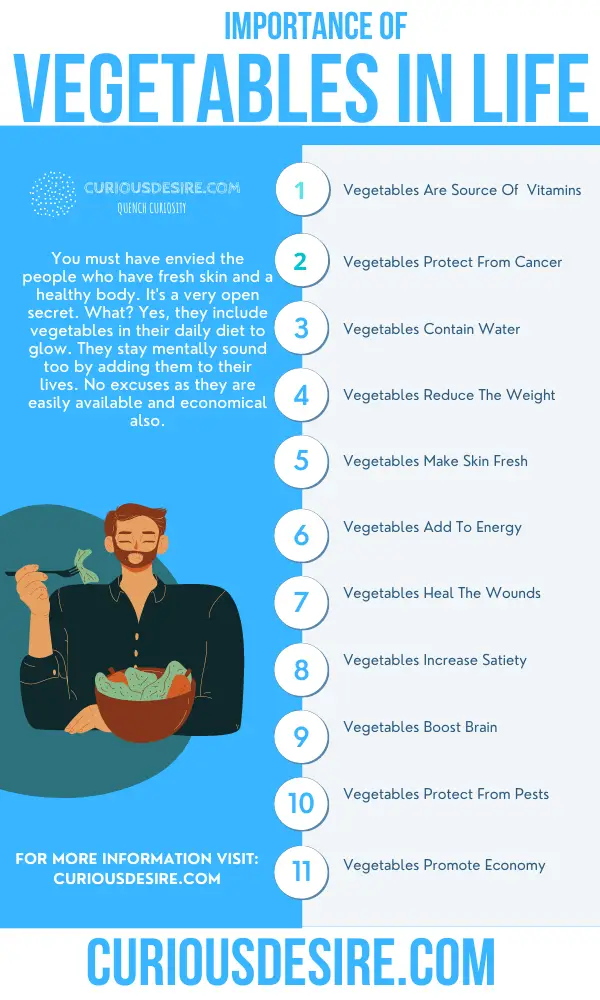Vegetables are rich sources of vitamins and minerals, particularly potassium and dietary fiber. They also contain many phytochemicals, which have been linked to cancer prevention and other health benefits.
Try to eat a wide variety of vegetables throughout the week. This allows for a greater diversity of beneficial plant chemicals.
Vitamins
Vegetables are nutrient-rich foods and are an important part of a balanced diet. They contain minerals, such as calcium and iron, and vitamins, such as folic acid and vitamin A. Most vegetables are low in calories and provide high amounts of dietary fibre.
The term vegetable refers to any edible part of a plant, including stems, leaves, flowers, roots and fruits. Originally, the term was used to describe all parts of the plant that could be eaten, but today it is more often restricted to edible plants that are green or leafy and include fruit, such as tomatoes and bell peppers, and starchy vegetables such as potatoes and corn.
Some vegetables are rich in vitamins, such as brussels sprouts and cabbage, which are members of the cruciferous family; these are particularly good sources of folic acid, which may help lower blood levels of homocysteine, a chemical that is linked to heart disease. Other vegetables are high in potassium, which is important for muscle function and normal blood pressure, such as swiss chard and spinach.
Many people struggle to get enough vegetables in their diet, especially those who live below the poverty line. However, research shows that consuming the recommended number of servings of vegetables can significantly reduce the risk of disease and ensure that important nutrients are absorbed by the body.
Minerals
Vegetables contain a wide range of minerals and trace nutrients that play a variety of roles in the body. Some of these are very important, including potassium (which can help lower blood pressure) and vitamin A, which helps keep your eyes healthy as you age. Many vegetables are also good sources of calcium and iron, which can support bone health.
Although the human body can only produce small amounts of these essential minerals, we need to eat foods that are rich in them to ensure that we get enough. Vegetables are generally rich in the following major minerals:
The levels of these and other minerals in vegetables vary greatly based on their growing conditions and how they are cooked, with some being more nutritious than others. In addition, their absorption can be affected by other food components such as phytic acid in beans and other legumes or competing nutrients (e.g. iron supplementation reduces zinc absorption).
The best way to make sure you’re getting the most from your veggies is to eat a wide variety of different vegetable and fruit families every day. For example, cruciferous veggies and leafy greens are known to protect against cancer, while root vegetables, squashes and citrus fruits offer protection against heart disease. In addition, many of these foods have unique antioxidants that can reduce the risk of certain chronic diseases.
Dietary Fiber
Vegetables contain a variety of nutrients that help maintain healthy cells and organs, such as potassium, folate and phytochemicals. Research shows that cruciferous vegetables like broccoli, cabbage and Brussels sprouts help prevent cancer by blocking carcinogens from entering the body. Other cancer-fighting nutrients in vegetables include vitamin C, calcium and magnesium. Folate, an important nutrient for pregnant women and those trying to get pregnant, is found in leafy greens. Potassium, which helps to regulate blood pressure, is in many vegetables, especially sweet potatoes and white and yellow potatoes.
The dietary fiber in vegetables can help to reduce cholesterol, promote regularity and lower blood sugar levels, which may also reduce the risk of diabetes. The average daily intake of dietary fiber from vegetables is 15 g, which is the recommended amount to help maintain good health.
Several studies show that people who eat more vegetables and fruits have less heart disease, stroke, obesity and some types of cancer. In one large study, increased vegetable consumption (including dark greens, red and orange veggies and beans) was associated with a 25% reduction in ischemic heart disease mortality, even after controlling for diet and other factors.
The best way to boost your veggie intake is to add more variety to your meals and snacking. Try adding new vegetables to your diet and explore the produce aisle for a wide selection.
Antioxidants
It’s no secret that vegetables are loaded with vitamins and minerals that contribute to growth, maintain good health and fight disease. Whether they’re steamed, roasted, added to soups and stews or eaten raw, most health experts recommend you fill half your plate with vegetables at most meals. A variety of vegetables and a mix of colors will help you get a wide range of antioxidants, too.
Antioxidants are a group of substances that have been found to combat oxidative stress, which can harm cells and lead to chronic diseases like heart disease, cancer, inflammatory conditions and arthritis, and cellular degradation that contributes to aging. The term “antioxidant” is used loosely; there are hundreds, if not thousands, of substances that fit the description and can act as antioxidants in food or supplements, including vitamins C and E, beta-carotene, selenium, lipoic acid, phytochemicals and flavonoids.
Antioxidants work by passing surplus electrons to free radicals that have accumulated too many, preventing oxidative damage and stabilizing them. They can be obtained through a healthy diet or as supplements, though too much of one antioxidant may actually be harmful. Talk to your doctor or dietitian about how to ensure you’re getting enough of the right kind of antioxidants. They’ll likely tell you to eat a variety of colorful vegetables and to avoid high-dose supplements.


Picture Framing Points
Picture framing point drivers — or tab/staple guns — fire framer points into wood frames to secure glass, mounted art and backing materials. They work much like a staple gun, but are designed to hold points rather than spring clips that can damage artwork or glass. United Manufacturers Supplies carries a full inventory of framing […]